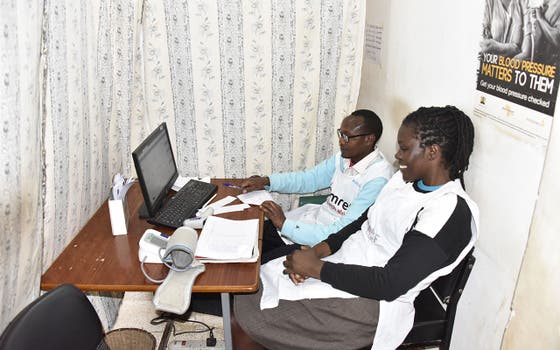Cardiovascular disease guidelines less applicable in poor countries

Researchers at UMC Utrecht investigated whether the guidelines for the treatment of cardiovascular diseases are applicable worldwide. They concluded that the European Society of Cardiology (ESC) guidelines are less applicable in developing countries compared to developed countries. Clinical practice guidelines generally recommend the best treatment, which often also is the most expensive treatment. In developing countries nearly 30% of recommended treatments were not available to physicians. The research was recently published in the European Heart Journal.
Cardiovascular diseases are one of the world's leading causes of death. Worldwide, 17.9 million people die of cardiovascular diseases every year, of which the chance to die in developing countries is 50% larger compared to developed countries. This is partly caused by large differences in treatments for cardiovascular diseases between developed and developing countries. To reduce the differences between countries, clinical guidelines can be used to ensure minimal quality of care standards. The European Society of Cardiology (ESC) aims to have its guidelines applicable worldwide.
Applicability of guidelines
Researchers from UMC Utrecht conducted a survey in 102 countries in which they asked how applicable recommendations and recommended studies and treatments are per country. The purpose of the survey was to see if the ESC guidelines are applicable worldwide. "The survey showed that the guidelines are significantly less applicable in developing countries compared to developed countries," explains Wouter van Dijk, researcher at UMC Utrecht. "This is partly because guidelines often recommend the best treatment, which often also is the most expensive treatment, which poorer countries just cannot afford. In developing countries nearly 30% of recommended treatments were not available to physicians."
More expensive treatments
The trend in Western countries is toward minimally invasive treatments for many cardiovascular diseases, such as infarcts and arrhythmias. Wouter van Dijk: "Minimally invasive treatments are surgical procedures in which much smaller incisions are made than in a 'classic' procedure. As a result, soft tissues such as muscles and tendons are damaged much less, if at all. However, minimally invasive treatments are more expensive treatments because they require more expensive equipment and more training. By no longer naming which traditional surgical treatments work best, it is often difficult for developing countries to still use the recommendations. As developing countries generally do not have the resources to develop their own guidelines this sometimes leaves them without applicable recommendations for diseases."
Country focus
The fact that guidelines are less applicable in poor countries could potentially affect differences in quality of care. "To solve this, guidelines should not only focus on the best research and treatments, but also take into account where in the world they can be applied," says Wouter van Dijk. "What makes the study special is that it shows for the first time that Western medical organizations' efforts to help developing countries are not paying off in their current form. To help developing countries bring the burden of cardiovascular diseases down, we need to actively work with these countries on what works and what does not work, for example by involving these countries in guideline development."
